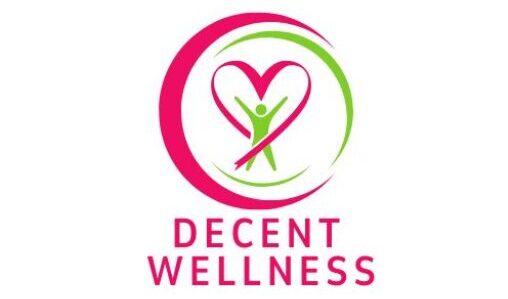Introduction to Health Guidelines
Guideline Overview
Health guidelines can be described as practical recommendations based on science, meant to help you achieve a long, healthy, and vibrant life. Think of them as your GPS to the often disorienting world of wellness.
Importance
To thrive on these health guidelines, it is far more than being free from sickness. It keeps you in check, minimizes chances for chronic diseases, and promotes energy, mood, and lifespan—all in all, a win-win, right?
Essential Ingredients for a Healthy Lifestyle
Balanced Diet
Nutrition does not mean that it is all-cooked meals made from kale and quinoa. It is about variety, moderation, and, most importantly, listening to your body.
Why Nutrients Matter
For your body to function, a mix of carbohydrates, protein, fats, vitamins, and minerals is needed. Each one does its job, from giving you energy to protecting your cells.
Recommended Daily Intake
Usually, an array of colors on a plate is a sign of health. Here is what one should aim for:
- Vege-table: must-have in each of 5 servings or more
- Whole grains: 3 servings
- Lean protein sources: 2-3 servings
- Dairy or calcium-rich foods: 2-3 servings
- Healthy fat: moderate amounts
Regular exercise
An additional mention, though not an extreme gym workout, it’s about moving your body.
- Why it matters
- Physical activity helps in:
- Controlling weight
- Improving mood
- Strengthening muscles and bones
- Keeping the heart healthy
Different Kinds of Workouts Will Help with Different Goals:
Cardio (walking, biking, jogging): For heart health and weight
Strength training (weights, resistance bands) has been seen as a means to strengthen muscles and protect bones, utilizing weight machines, free weights, suspension devices, and elastic resistance forms.
Flexibility (yoga, stretching): Prevent injuries and reduce stiffness
Get Enough Sleep
Sleep is the health option the public usually underrates.
How Sleep Matters for Your Health
- For your health””hether it be joint repair, hormonal balance, brain support, or immune health“”you”need quality hours of sleep.
- Ways to Better Sleep
- Keep a sleep schedule.
- No screens before bed
- Keep it cool and dark.
- End your day with reading and meditative thought.
- Mental Health and Emotional Wellness
Managing Stress
Chronic Stress Can be Silent Killer. Wouldn’t Deep Breath, Cash Breaks, or Say No When Needed Work Magic?
The Role of Mindfulness and Meditation
Mindfulness means being there or present. Thus, as it is practiced reduces anxiety and boosts concentration levels. Just 5 minutes a day is the start!!.
Social Connections and Support Systems
You aren’t on your own. Family, friends, support groups; all are made up into the emotional safety net.
Preventive Health Measures
Regular Health Screenings

Make Sure you do not run into problems, if it can be avoided; screening for cholesterol or blood pressure, and cancers saves life.
Vaccinations and Immunizations
They’re not just for kids. Adults need flu shots, shingles, tetanus boosters, and more.
Hygiene and Personal Care
Washing up, taking care of the teeth, and doing one’s physical self are not merely a practice of courtesy; it is also a preventive measure against diseases.
Healthy Habits for Everyday Living
Hydration: The Drinking of Water
The body is approximately 60% water; hence, one should drink about 8 cups (or 2 litres) of water daily, if not more, during exercise. A good tip: as soon as you feel thirsty, it’s probably a sign that some dehydration is already at play.
Limiting Sugar and Processed Foods
Sugar exists in everything. It reached cereals; it reached salad dressings. Select whole foods and read labels carefully.Practices That Can Damage Your Health
Go for tobacco, curb alcohol, or simply reject any kind of recreational drugs. You will thank yourself in the future.
Health Recommendations for Different Life Stages
Children and Adolescents
Growth, learning, and immune system development
Encourage outdoor play and balanced meals.
Adults
- Coping mechanisms: keep active.
- Weight, cholesterol, and mental care.
- Seniors
- Focus on fall prevention, joint care, and mental stimulation.
- Make an effort to remain socially active and have regular health checkups.
Technology and Health
Wearables and Health Apps
Smartwatches, fitness trackers, and nutrition apps keep you accountable. Plus, they make tracking fun!
Telemedicine-Online Consultation
Got health concerns? Speak with a doctor from the comfort of your couch- it couldn’t be more convenient or safe.
Constructing the Personalized Health Plan

Setting Realistic Goals
To create Specific, Measurable, Achievable, Relevant, and Time-bound goals by the thrill of the SMART technique: For example walk 30 minutes every day of the week: Monday through Friday.
Keeping Track of Progress and Modifying
Use journals, apps, or just good old-fashioned calendars to track your eating, training, and any symptoms you experience. Change things up depending on what works and what doesn’t.
Conclusion
Living your healthiest life doesn’t mean perfection; it means being consistent. Whether you’re just starting or making it the best routine, these health guidelines form the bedrock. Take baby steps, stay up to date, and remember: your health is wealth.
FAQs
What are the most important health guidelines?
Eat well, be active, sleep well, control stress, and get a check-up when due.
How can I start being healthy today?
Start right away with little things: drink water, take a short walk, and limit sweets.
How many liters should be ingested per day, in total?
For a target, you must listen to your body and drink at least eight cups (2 liters)
Put in extra water when it is hot and after exercising.
Are health apps so useful?
They do, especially in tracking habits and setting goals and motivation, but don’t take numbers too far.
How frequently do I need to have a health checkup?
It calls for an annual check-up for almost every adult. However, consult your doctor to have a comprehensive schedule on a personal basis.

